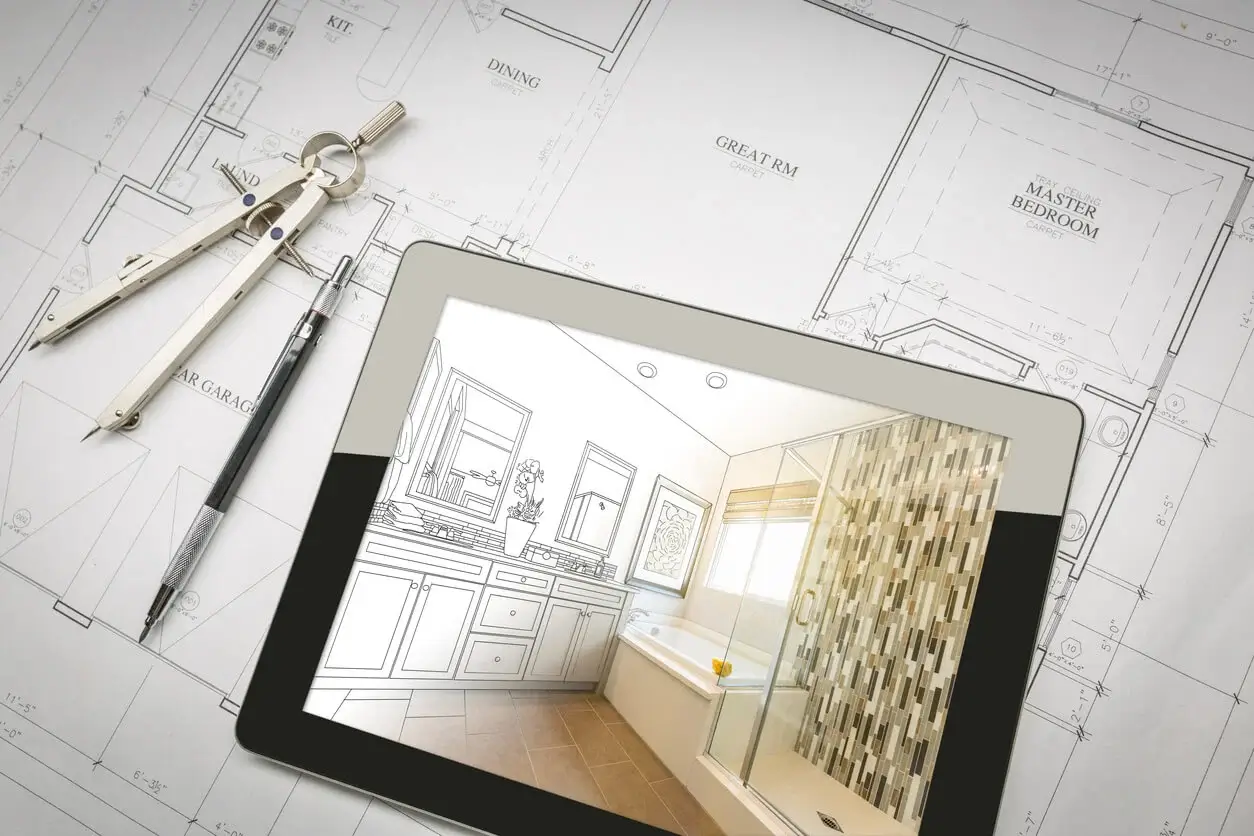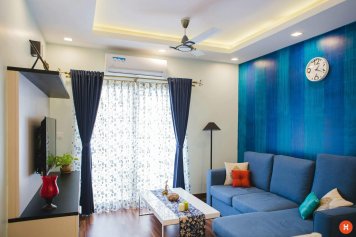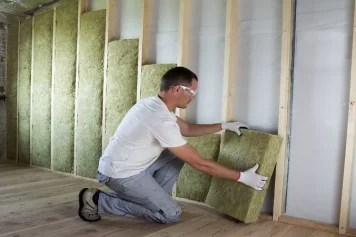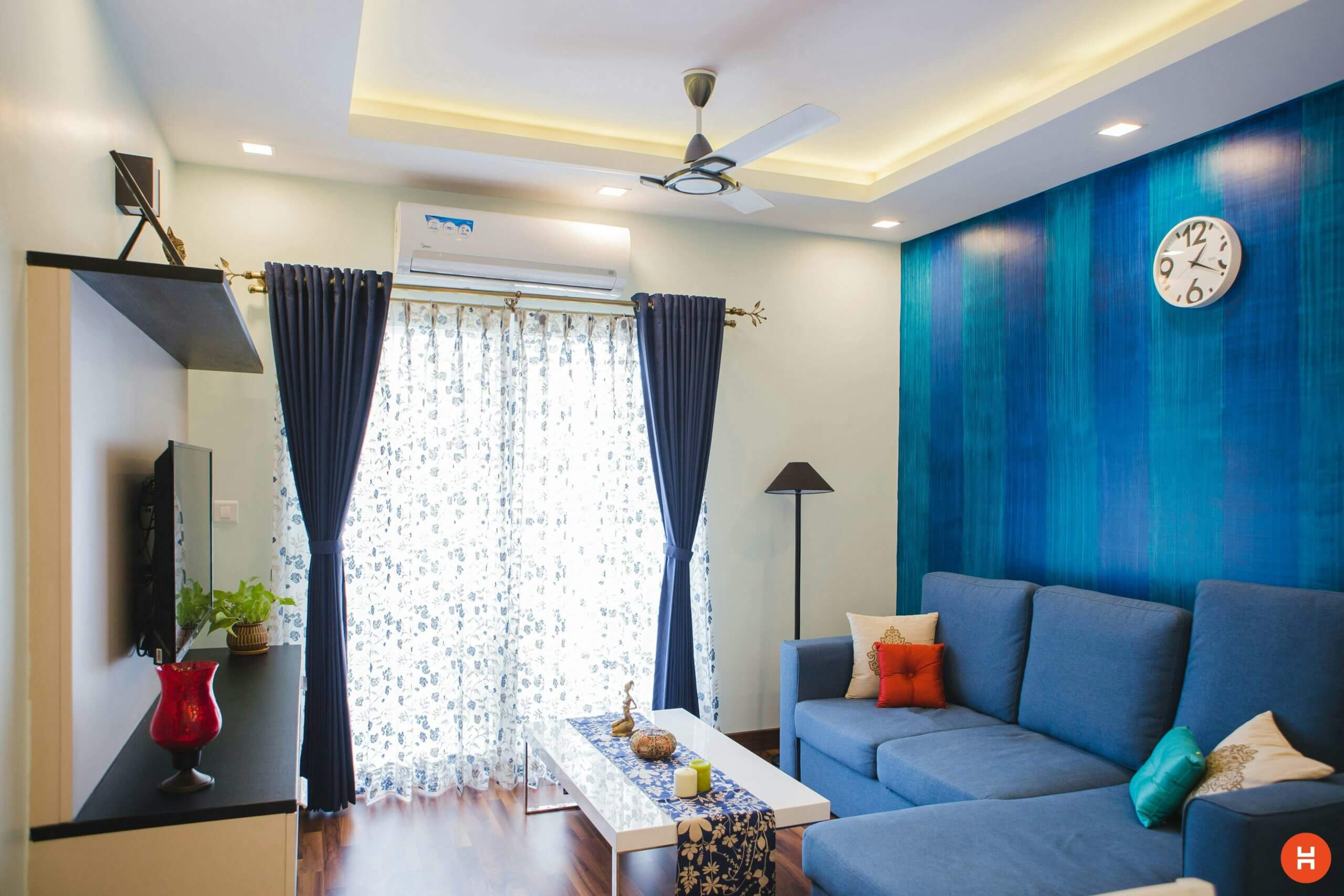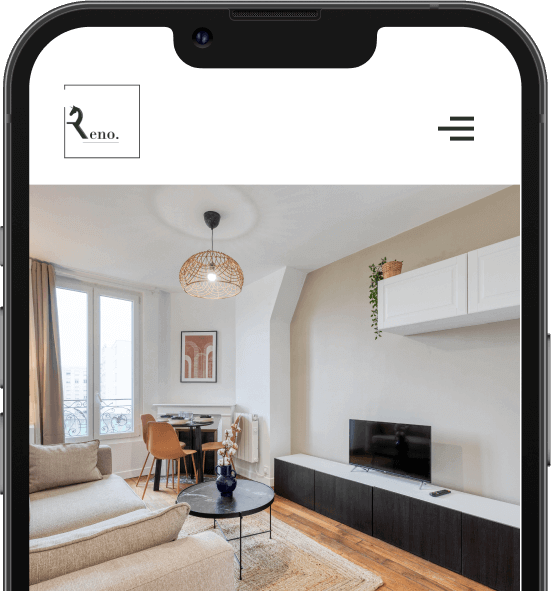Home renovations require thoroughness, foresight, and careful choices. Each step influences the cost, quality, and final comfort. The project may involve insulation, roofing, walls, or even plumbing.
Each type of project requires strict standards to be met. Energy renovation grants can reduce your budget, provided you apply early. It’s important to carefully prepare the project, including assessing the condition of the home and choosing materials and tradespeople. A good quote allows you to compare prices and avoid unpleasant surprises during the project.
Renovating an old house sometimes involves demolishing walls or reinforcing the structure. Interior design work includes installing heating, bringing electrical systems up to standard, and painting. The chosen company must have solid references, particularly for work on occupied sites .
Note that a well-managed construction site can enhance the value of a home and reduce energy consumption. A renovated home also offers better thermal and acoustic comfort. To maximize every euro spent, you must follow a precise plan. With the right support, your project will take shape according to the rules of the art.
Understanding Your Home Renovation Project: The Important Basics
Renovating a home is part of a strategic approach to meeting diverse needs. Energy renovation is a priority, combining the fight against climate change, gaining energy independence, and improving comfort. According to data, 68% of French people are aiming for a facelift for their home , while 45% are targeting insulation. With costs ranging between €500 and €1,500 per m², careful preparation is essential to avoid budget overruns.
Renovation work falls into three categories:
- Light renovation (refreshing paint, replacing coverings) is suitable for a limited budget.
- Complete renovation (overall restructuring, electrical and plumbing compliance) requires a larger investment.
- Energy renovation focuses on thermal insulation and energy efficiency.
Each type meets specific objectives, from a simple refresh to a radical transformation. The benefits of a renovation are felt on several levels. On a practical level, reinforced insulation and optimized ventilation limit energy loss, reducing bills.
From an economic perspective, an energy audit reveals a property valuation increase of 4 to 10%. 86% of owners who have renovated their property report improved comfort. Finally, adapting to current needs (accessibility, modern layout) transforms the space into a tailor-made space.
Before undertaking any work, three aspects deserve special attention. The initial condition of the home, particularly the foundations and load-bearing walls, determines the possible interventions. Structural constraints, such as cracks or humidity in older buildings , require precise diagnostics.
However, local regulations, including the Local Urban Planning Plan (PLU) and RE 2020 standards , govern modifications. This particularly concerns protected areas or those with historical monuments. These preliminary checks avoid unpleasant surprises and ensure the legal compliance of the project.
Planning and organization of renovation work
Several factors influence the cost of a renovation . The size of the home is a determining factor, as is its initial condition. The nature of the work (light, partial, or extensive) and the quality of the materials chosen impact the budget. For a 100 m² house, expect to pay between €50,000 and €100,000, depending on your needs. Calculate your home renovation budget based on your specific needs.
Chronological steps of a successful renovation project
Establishing a clear schedule prevents delays and errors. The order of work is crucial for project coherence. Here are the key steps:
- Diagnosis and evaluation of the current condition of the house
- Planning of work and administrative procedures
- Execution of structural work and technical installations
- Finalization with interior finishes and fittings
Coordinating your craftspeople and adhering to the schedule ensures a successful renovation. Follow best practices for your renovation project to avoid pitfalls.
Administrative procedures and regulations to know
Before starting work, make sure you have the necessary permits for your home renovation project . A prior declaration or a building permit may be required depending on the condition of the building or the type of site. Comply with electrical standards (NF C 15-100), thermal regulations (existing RT) and the Local Urban Planning Plan.
Grants can reduce the cost of renovations if you meet the requirements. France Rénov’ offers personalized support to estimate your budget and obtain quotes. To renovate effectively, start by insulating the walls, roof, or partitions. According to ADEME, good insulation improves comfort and reduces energy costs (long-term energy savings).
Choose materials suited to your home and hire qualified craftsmen or contractors. Each stage of the project must comply with current regulations, particularly for plumbing, heating, interior design, and equipment installation. If in doubt, consult a building or energy renovation professional .
Comparison of the costs, advantages and disadvantages of self-management, project management and architect for a renovation project | ||
Option | Cost | Advantages and disadvantages |
Self-management | 0% (indirect costs related to materials and unforeseen events) | Benefits: Total control over decisions, potential savings, customization. Disadvantages: Requires technical skills, availability, management of unforeseen events, risks of poor workmanship. |
Project manager | 6 to 14% of the total amount of work | Benefits: Coordination of trades, respect for deadlines and budget, technical support. Disadvantages: Additional cost of 6 to 14%, less control over aesthetic choices. |
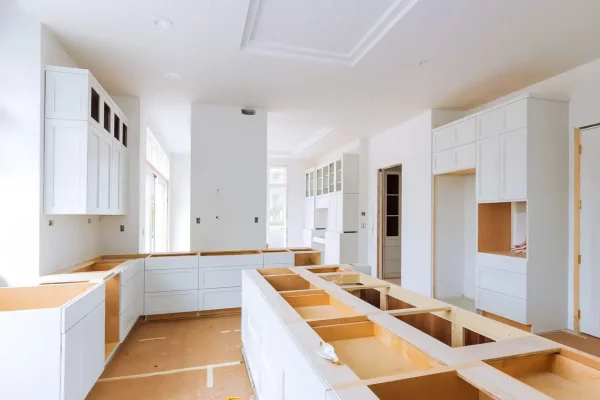
Renovate for a more efficient and comfortable home
Entrusting home renovation work to a specialized company is important to ensure the performance and comfort of your home. This way, you can fully enjoy the quality of the results upon delivery.
Energy renovation: priorities and effective solutions
Energy renovation is a major challenge for reducing energy bills and improving comfort. According to a study, 86% of households that have opted for this approach report improved thermal comfort. Discover the grants available for energy renovations and the solutions tailored to your home.
Thermal insulation is the top priority for a profitable project. It comes in several options, such as glass wool for attics, rock wool for walls, and bio-based insulation. Thermal resistance (R), calculated based on the material’s thickness and conductivity, determines its effectiveness. According to ADEME, a good insulation project reduces heat loss through walls by 25 to 30%.
The choice of heating system directly influences the energy balance. The air/water heat pump stands out for its efficiency, with a COP of 3 to 5. It adapts to different budgets, unlike more expensive solutions like geothermal energy. By 2025, many French households will be using a heat pump, compared to 8% in 2011, reflecting growing adoption.
Well-designed ventilation prevents humidity problems and improves indoor air quality. Single-flow CMV is sufficient for single-family homes, while double-flow maximizes energy savings. Without a proper system, humidity levels could reach 60%, promoting mold and unpleasant odors, according to some studies.
Optimizing space and improving interior comfort
Creating a more functional space involves removing unnecessary partitions. A load-bearing wall can be replaced with a beam to preserve the structure. For a 100 m² house, this transformation opens up an additional 10 to 15 m² of usable space.
Solutions for optimizing limited space are multiplying. Built-in storage, such as Murphy beds or modular furniture , free up valuable square meters. Wall-mounted shelves take advantage of ceiling height. In a 5 m² kitchen, a custom-made piece of furniture increases interior storage. In the Paris region, these developments increase usable space by 15 to 20%.
Natural light is maximized through enlarged openings or skylights. These, installed in windowless rooms, reduce electric lighting consumption by 12%. Light tones on wall surfaces and mirrors visually enlarge the space, an asset in narrow rooms.
Soundproofing deserves special attention, especially in urban areas. Partition walls absorb noise pollution using panels made from recycled cotton or cellulose wadding. Combined with floating floors and thick curtains, this approach can block out up to 40% of outside noise, according to acoustic surveys.
Specific features of renovating an old house
Old houses hold undeniable charm, but they also conceal technical challenges. Stone or cob walls, designed without a waterproof barrier , allow moisture to circulate. An improper renovation, such as non-breathable insulation, could block this process, leading to blistering and mold.
The use of breathable materials is essential to maintain the humidity balance of an old building. Lime, hemp, or terracotta prevent the “oven” effect in summer and the “fridge” effect in winter. These solutions, inherited from traditional techniques, adapt to porous substrates. Integrating them into existing walls prevents expansion gaps that can cause cracks.
Modernizing without distorting the soul requires discreet solutions. Electrical outlets integrated into moldings preserve character. Home automation integrates seamlessly thanks to wireless sensors. For aesthetic lighting, discreet wall lights mimic the ambient lighting of the past.
Aid for the renovation of historic heritage sites is increasing. The Fondation du patrimoine (Heritage Foundation) awards grants covering an average of 12% of the budget, while the DRAC (Regional Directorate of Regional Development) subsidizes listed monuments. These schemes, which can be combined with MaPrimeRénov’ (Renovation Fund), can finance up to 80% of the work, subject to strict conditions of historic preservation.
Calling on renovation professionals: tips and tricks
It’s important to choose the people you entrust with your home renovation work carefully. This way, you won’t run the risk of any unpleasant surprises.
How to choose the right craftsmen for your project?
Selecting the right tradespeople starts with some important checks. Verify their legal status via their SIRET number on Infogreffe. Make sure they have civil liability insurance and, for major projects, a ten-year warranty. RGE (Recognized Environmental Guarantors) tradespeople have priority for energy renovations because they qualify for financial aid like MaPrimeRénov’. 97% of construction companies are artisanal, meaning they are local and specialized.
To find qualified professionals, local networks and word of mouth remain effective. Compare multiple quotes to identify price differences and the materials offered. One study shows that a well-planned project with experienced tradespeople reduces unforeseen costs by 30%.
To avoid misunderstandings, establish detailed specifications. These specify expectations, deadlines, and materials used. Formalize agreements in a contract that includes tradespeople’s insurance, a ten-year warranty, and late payment penalties. Clear and regular communication, supported by written documents, helps avoid disagreements. The key is to surround yourself with reliable professionals, even if it takes time.
Additional financing solutions for your renovation
The Action Logement loan is aimed at private-sector employees , with a ceiling of €30,000 for accessibility or energy-saving work. Pension funds, such as the MSA (French Social Security Fund), also offer low-interest loans for retirees. The Housing Savings Plan (PEL) allows you to finance renovations after four years of saving, with a preferential rate for energy-saving projects.
Using personal savings avoids loan fees, but beware of taxes. Energy renovations qualify for tax breaks, such as the 5.5% VAT rate on materials. Rental investors can combine MaPrimeRénov’ with the Denormandie program, offering up to 30% off eligible work. The key is to combine public and private sources for a balanced project.
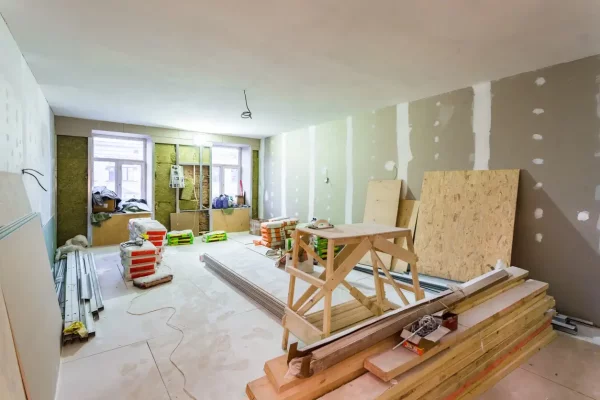
Financing your renovation project: assistance and tailored solutions
Hiring a company to carry out home renovation work also offers financial benefits. You’ll be able to take advantage of certain grants to boost your budget.
Financial aid for renovating your home
National aid includes MaPrimeRénov’, the eco-PTZ, and reduced VAT . MaPrimeRénov’ varies depending on your income and the type of work, with a ceiling of €20,000 over 5 years. The eco-PTZ is an interest-free loan, which can be combined with other aid and is available without any means test. The reduced VAT rate of 5.5% applies to energy renovation work if the home is more than 2 years old. Benefit from tax relief of up to 21% via the Denormandie for eligible work.
Local aid complements the system. Local authorities, pension funds, and energy savings certificates (CEE) offer preferential grants or loans. France Rénov’ centralizes information through its one-stop shops. CEEs, set up by energy suppliers, target specific projects such as insulation. Low-income households can obtain up to 90% of their costs covered by combining aid, depending on income and region.
To build a solid application, prepare your quotes and supporting documents, and use RGE-certified professionals. Grants must be applied for before work begins to ensure they are awarded. MaPrimeRénov’ requires an RGE professional, a guarantee of quality. The eco-PTZ requires a prior granting decision. Grants such as the 5.5% reduced VAT rate and CEE require specific procedures. Proper preparation prevents rejections and optimizes financing.
Additional financing solutions for your renovation
Bank loans include the traditional renovation loan (€500 to €75,000) and the dedicated consumer loan. The former offers rates between 3.5% and 4.5%, depending on the term. The latter requires proof of work but offers a lower rate. Conditions vary: borrower’s insurance, term (up to 15 years), and guarantees. For small renovations, revolving credit remains an option, despite higher rates (up to 8.51%).
The Action Logement loan, available to private sector employees, finances up to €20,000 at 1.5% for energy renovations. Pension funds grant up to €3,500 for energy improvements. The PEL (Personal Energy Savings Plan) provides advantageous financing after four years of savings. Retirees can apply for specific assistance, such as MSA (Mothers’ Housing Association) loans. Large families or people with disabilities benefit from targeted programs, such as the renovation advance loan, which defers repayment until the sale.
Using your savings remains a cost-free solution. Home savings accounts or specific loans (Crédit Mutuel, Caisse d’Épargne) facilitate financing. Energy renovations offer tax benefits: MaPrimeRénov’ combines with a reduced VAT rate of 5.5%. The Denormandie program offers a tax reduction on renovations in older areas, capped at €300,000. Rental investors can maximize their profitability through these schemes.
Renovating your home requires preparation, a smart budget, and choosing reliable professionals. By planning each step yourself, anticipating real costs, and surrounding yourself with qualified professionals, you can transform your home into a healthier, more efficient space. The expertise and available support offer you a unique opportunity: take the plunge and embark on a project that combines comfort, savings, and long-term peace of mind!
FAQ
What loan for a renovation without a deposit?
There are several options available to you for financing a renovation without a down payment. The zero-interest eco-loan (Eco-PTZ) is an attractive solution for energy renovation work, allowing you to borrow interest-free. Other options include the Canadian Green Homes Loan and zero-down payment home loans offered by some banks.
How to reduce the cost of a renovation?
To control your renovation budget, careful planning is essential. Clearly define your priorities and avoid last-minute changes. You can also manage certain aspects of the project yourself, such as painting or flooring, and compare material prices.
Renovation: how to avoid poor workmanship?
To avoid unpleasant surprises during your project, choosing the right contractor is crucial. Compare quotes, read customer reviews, and make sure the contractor is properly insured. Actively monitoring the progress of the work is also essential, and in the event of a delay, don’t hesitate to schedule a meeting with the contractor. Finally, seek professional assistance when the work is completed.
Which renovation works are a priority?
Priority renovation work is that which affects the safety of your home and its energy performance. This includes structural work, such as the roof and foundations, as well as thermal insulation (walls, roof, windows) and the heating and ventilation system.
The goal is to reduce heat loss and improve comfort while lowering your energy bills. It’s often recommended to start with insulation, as a well-insulated home requires less heating.
What insurance is available for renovation work?
Insurance for renovation work depends on the nature of the work and the parties involved. Building damage insurance (DO) is mandatory for construction, extension, or structural renovation work. It pre-finances the repair of damage without any liability claims.
Your home insurance may also cover certain work, but it’s important to check the terms of your contract. Additionally, construction professionals must carry ten-year civil liability insurance, which covers damage affecting the strength of the structure or rendering it unfit for its intended purpose for 10 years.

